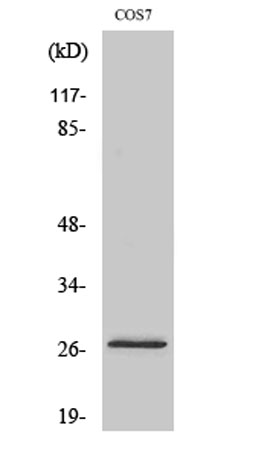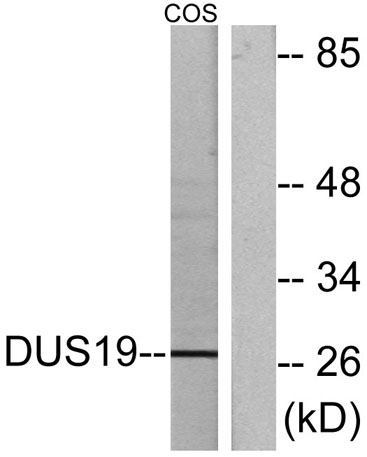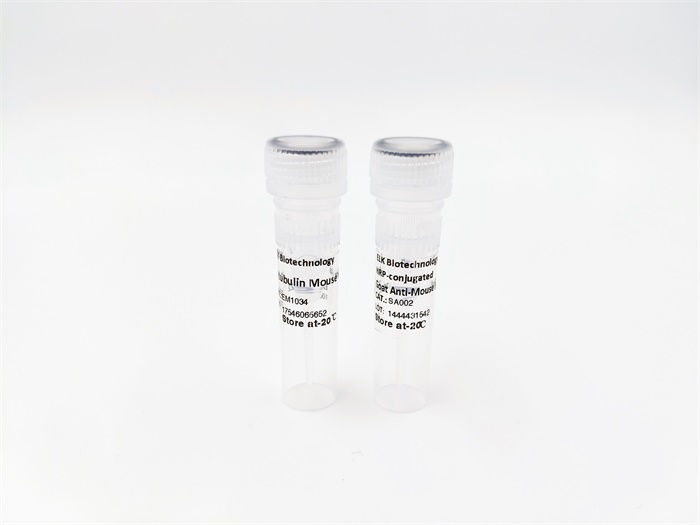



Overview
-
 Western Blot analysis of various cells using DUSP19 Polyclonal Antibody
Western Blot analysis of various cells using DUSP19 Polyclonal Antibody -
 Immunofluorescence analysis of HeLa cells, using DUSP19 Antibody. The picture on the right is blocked with the synthesized peptide.
Immunofluorescence analysis of HeLa cells, using DUSP19 Antibody. The picture on the right is blocked with the synthesized peptide. -
 Western blot analysis of lysates from COS7 cells, using DUSP19 Antibody. The lane on the right is blocked with the synthesized peptide.
Western blot analysis of lysates from COS7 cells, using DUSP19 Antibody. The lane on the right is blocked with the synthesized peptide.
关闭
在线咨询
Online consultation
-
在线咨询
-
技术支持

关注微信公众号



 下载说明 ①
下载说明 ①




